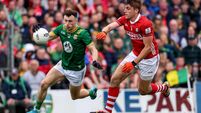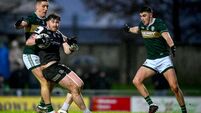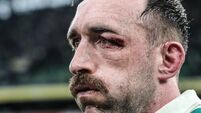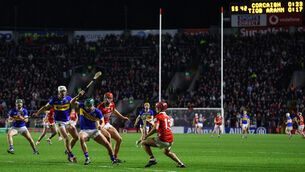That’s how winning is done

It’s a very mean and nasty place and I don’t care how tough you are, it will beat you to your knees and keep you there permanently if you let it. You, me or nobody is gonna hit as hard as life. But it ain’t about how hard you hit. It’s about how hard you can get hit, and keep moving forward, how much you can take, and keep moving forward. That’s how winning is done!” -
The way Seamus Hennessy looks at it, every inter-county player is just passing through; you only have that shirt or that spot in the dressing room for so long. It might be for just one game and you’re not asked back. It might be one year, three years, five, or in the freakish case of a Tony Browne or a Brendan Cummins, bordering on 20. But even they move on. You might always be a supporter but you’re only for so long ever a county player.












